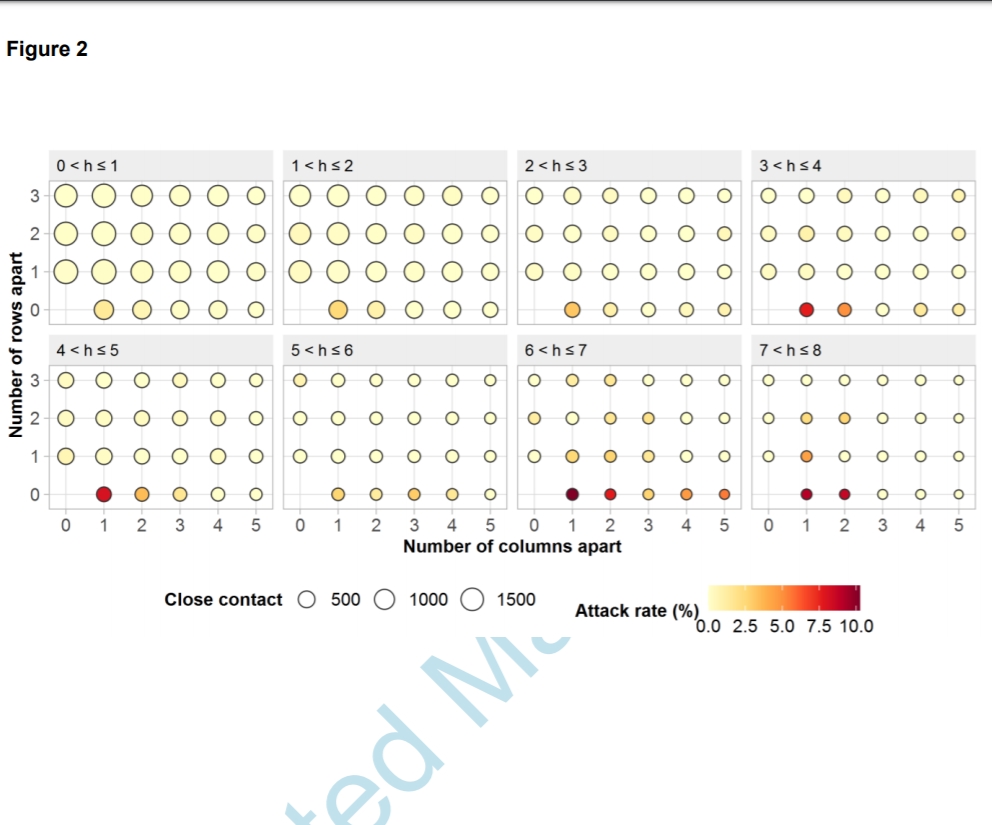The risk of COVID-19 transmission in train passengers: an epidemiological and modelling study
Maogui Hu, Clinical Infectious Diseases, 29 July 2020
Background
Train is a common mode of public transport across the globe; however, the risk of COVID-19 transmission among individual train passengers remains unclear.
Methods
We quantified the transmission risk of COVID-19 on high-speed train passengers using data from 2,334 index patients and 72,093 close contacts who had co-travel times of 0–8 hours from 19 December 2019 through 6 March 2020 in China. We analysed the spatial and temporal distribution of COVID-19 transmission among train passengers to elucidate the associations between infection, spatial distance, and co-travel time.
Results
The attack rate in train passengers on seats within a distance of 3 rows and 5 columns of the index patient varied from 0 to 10.3% (95% confidence interval [CI] 5.3% – 19.0%), with a mean of 0.32% (95%CI 0.29% – 0.37%). Passengers in seats on the same row as the index patient had an average attack rate of 1.5% (95%CI 1.3% – 1.8%), higher than that in other rows (0.14%, 95%CI 0.11% – 0.17%), with a relative risk (RR) of 11.2 (95%CI 8.6 –14.6). Travellers adjacent to the index patient had the highest attack rate (3.5%, 95%CI 2.9% – 4.3%) of COVID-19 infections (RR 18.0, 95%CI 13.9 – 23.4) among all seats. The attack rate decreased with increasing distance, but it increased with increasing co-travel time. The attack rate increased on average by 0.15% (p = 0.005) per hour of co-travel; for passengers at adjacent seats, this increase was 1.3% (p = 0.008), the highest among all seats considered.
Conclusions
COVID-19 has a high transmission risk among train passengers, but this risk shows significant differences with co-travel time and seat location. During disease outbreaks, when travelling on public transportation in confined spaces such as trains, measures should be taken to reduce the risk of transmission, including increasing seat distance, reducing passenger density, and use of personal hygiene protection.














